“Peace is a Luxury;” Volunteer’s Lessons From Ukrainian Refugees in Poland
First-time Global Volunteer Pam Ballard said she couldn’t have correctly anticipated the impact of working one-on-one with Ukrainian refugee families in Poland. And now, she’s not certain she can adequately describe the impact the experience has had in her own life. Back at work as CEO of Community Service Council in Tulsa, OK, her understanding of the commonality of human needs is well-defined. But, as similar as she found the Ukrainian mothers and children she served to herself and her own daughters, she admitted that the experience of war can’t easily be mutually understood or shared. Read on for Pam’s personal account of a most poignant journey of compassion.
Volunteering is in Pam Ballard’s DNA. The daughter of a minister, as a child, she accompanied him on visits to nursing homes, county jails, and the realms of those living on the margins. “He treated everyone, regardless of their lot, with great respect and kindness. He instilled these values in me,” she asserted. Today, while caring for others is her daily focus, the escalation of conflict in Ukraine tickled a long-held longing to test her commitment outside her immediate community. “I was looking for a meaning way to spend time away from my current position. I did a search for volunteering oversees. After researching several organizations, I was most impressed with Global Volunteers’ history, array of opportunities, volunteer testimonials, and the inclusive nature of the program logistics.”
Her decision was quick. Within days, she had cleared her schedule to serve on two of the early service programs in Siedlce County, Poland to teach conversational English and help settle families fleeing their devastated homeland. Just two months later, she arrived at the center of Global Volunteers’ first-ever refugee relief program under the direction of long-term community partners. “On our first full day, we actually were introduced to some of the Ukrainian moms and their children,” Pam said. “It was as though I was looking at myself in the mirror. I suppose, the most heartbreaking piece of all of it, because somehow like between sitting on your couch and watching something on the news, and then sitting next to someone and having dinner with them, it’s just so completely different. I mean, they were the same, but our experiences were so different.”
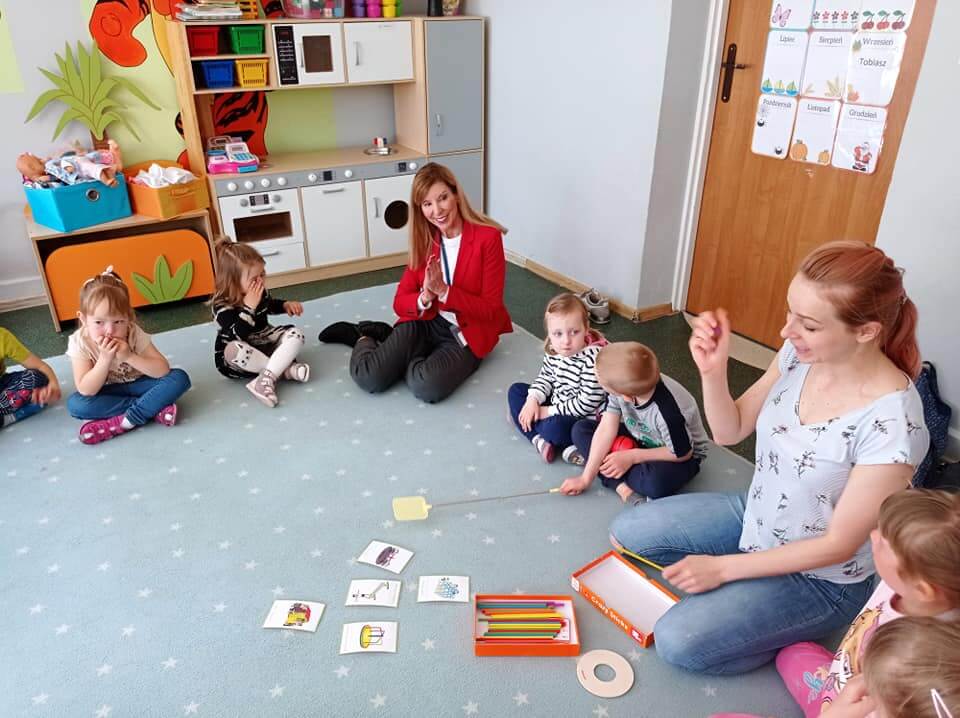
She elaborated: “They’re women who are so much like myself and my daughters – who, as well-educated professionals, fully supported themselves and their children. And now, all of that’s been stripped from them – the psychological toll is heavy.
For instance, all they had were winter clothes for their children for two or three days. You’re talking about individuals, who are so accustomed to providing for their families, and taking care of themselves, and all of a sudden, they’ve lost all control.”
Trying to imagine herself in the same circumstances – observing the faces of the new arrivals and those departing for home – sometimes kept her up at night. “I’m so grateful that at least we have the opportunity through Global Volunteers to personally help, to provide meals for them, and to help purchase things like clothing, diapers, formula, and basic necessities that’s so important in the early days.”
“One mom said she had never thought of peace as a luxury until February 24th. Can you imagine that? Now that’s a lesson I brought home with me.“
Poland Volunteer Pam Ballard
In the Stream of a Multilateral Effort
Pam observed the collaboration between various levels of government and local social service agencies streamlined relief efforts for Ukrainian refugees in Poland. Material donations from various points around Poland and France arrived in Siedlce Country to be transported to the Ukrainian border. Funds collected by Global Volunteers were combined with donated items carried from the U.S. by volunteers to help meet the immediate needs of families sheltering in Siedlce County. “The families don’t want to rely on handouts,” Pam emphasized. Of course, they’d prefer to be earning their own way, but there aren’t that many jobs available. Certainly, the government of Poland is trying to supply housing and jobs for them. So, this is where Global Volunteers and the local government have really partnered together to make living spaces and relief services available.”
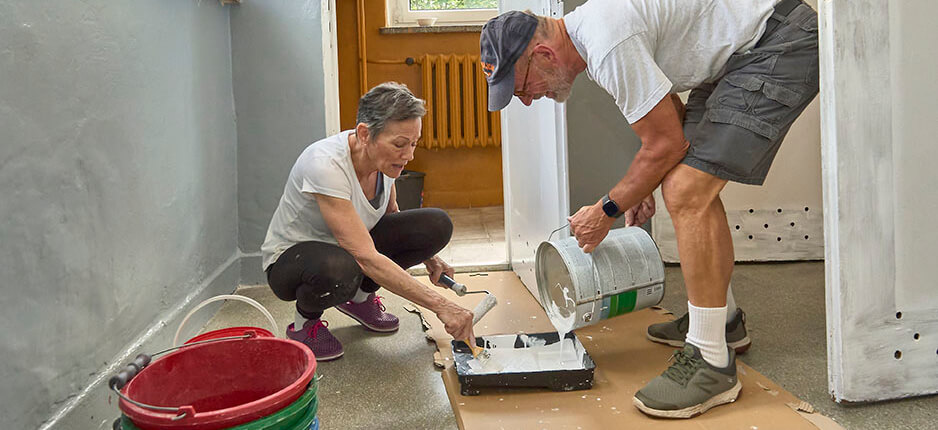
She reported that the service work she and her 12 teammates were assigned to focused in two areas: Housing and psycho-social support. “Part of our group helped renovate the upstairs of a preschool for several families while some of us helped (Global Volunteers’ staff) purchase things they needed, like curtains for the windows, a dining room table, towels, bedding and the like. You have to imagine how they’ve been getting by without these things for all these months.”
Other volunteers worked with the children during the day on recreational activities and English lessons, she continued. “Then, from 4:00 to about 6:30, we’d all unite – volunteers and Ukrainian families – to conduct activities for the moms and the children separately, followed by a family-style meal. We’d have quiet time or provide some type of recreational activity like painting or art classes for the mothers while the children were supervised outside. It really was a wide range of activities that we got to experience, and each of us became really kind of bonded to them,” she offered. “We even had a bonfire with a cook-out, and roasted marshmallows. They had never had s’mores, and it was just so beautiful; that time we had together with them.”
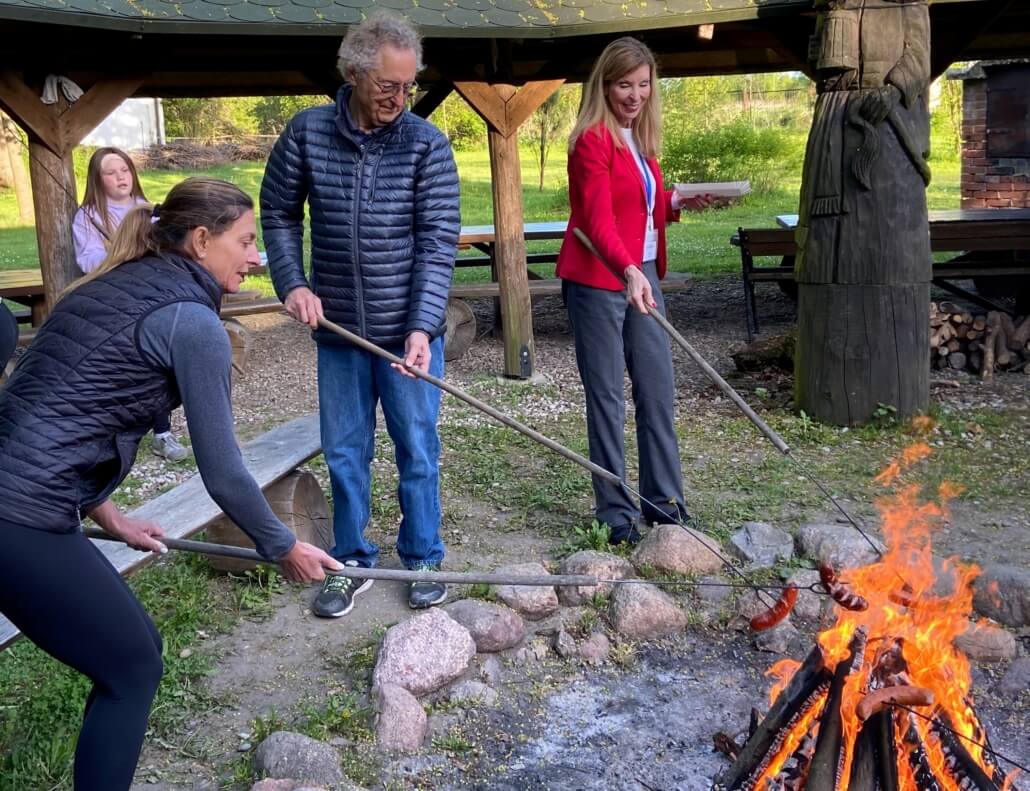
Sometimes, the activities became very personal. “One of the volunteers had traveled quite a bit, and had learned, I think, a Navajo tradition. We wrapped a blanket around one of the ladies and asked her what word she would like to hear to bring her comfort. And then the other ladies gathered around her and speak that word to them. We did that with each of the mothers. Even though we had three separate groups of moms that came on different days, without fail, they always stated same words: ‘victory,’ ‘it is safe,’ or ‘you can come home.’ It was just miraculous how everyone had their special talents to work with every one of the mothers and children. We even had a (volunteer) basketball coach that, you know, worked so well with the students. I thought that was really beautiful.”
History Propelled her to Act; The Future Calls her Back
Pam said before she joined the Ukrainian Refugee Program, her desire to make a difference in an historic way had simmered for many years. “Sometimes you look back on your life, and you see other things prepared you to take action, or maybe formed your desire to do something important. I’ve read a lot about World War II, like many people. The piece about that that has always really intrigued me, was those who were part of the resistance movements – especially the women who are part of the French resistance movement, or even the small Italian resistance movement. And I always thought, you know, if anything like that happens in my lifetime, I hope I would want to do something to help, however small that may be. I hoped I would do that. So not long after invasion into Ukraine. I started looking for ways to help in some way.”
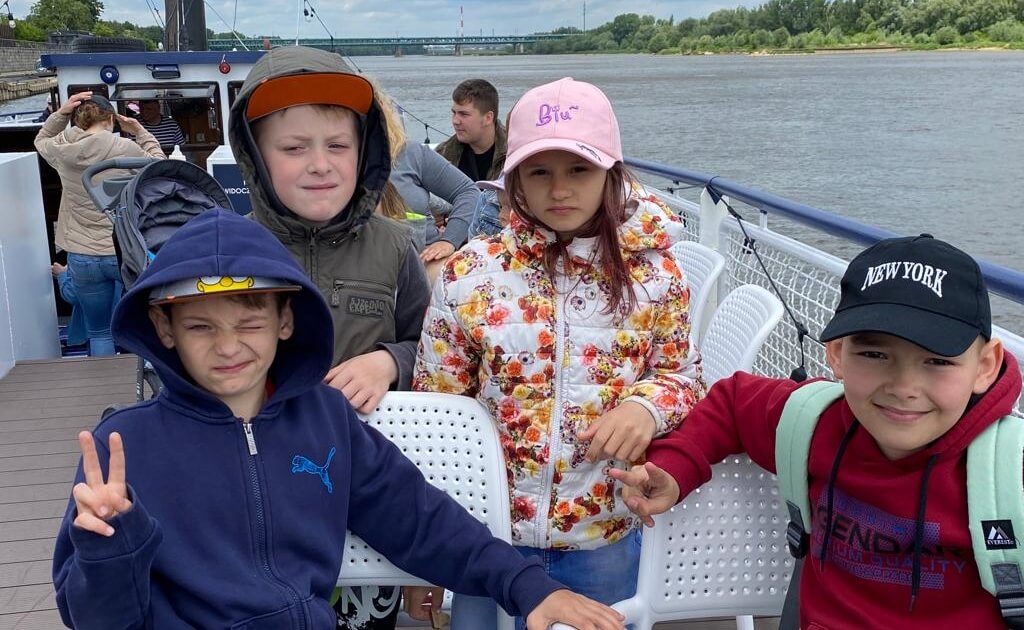
If she’s reviewing her past for the humanitarian acts that have prepared her to serve Ukrainian refugees in Poland, she has a great number of them to consider. Pam’s served as a volunteer Commissioner for the Oklahoma Community Service Commission for 25 years, having been appointed by the past four Governors – even being invited to the White House by President George W. Bush in recognition of her volunteerism. She was recognized as one of Tulsa Community College’s 50 Most Notable Alum, and was named Outstanding Senior for the University of Oklahoma’s College of Liberal Studies. Her honors tells a story of a consistent service: “Volunteer of the Year” by the American Heart Association, Kiwanis, and a local Main Street organization; the Pink Ribbon award from Susan G. Komen Tulsa; “Insight” Magazine’s recognition for nonprofit work and leadership.
“Each of us became really kind of bonded to the families. It was just so beautiful, that time we had together with them.”
Poland Volunteer Pam Ballard
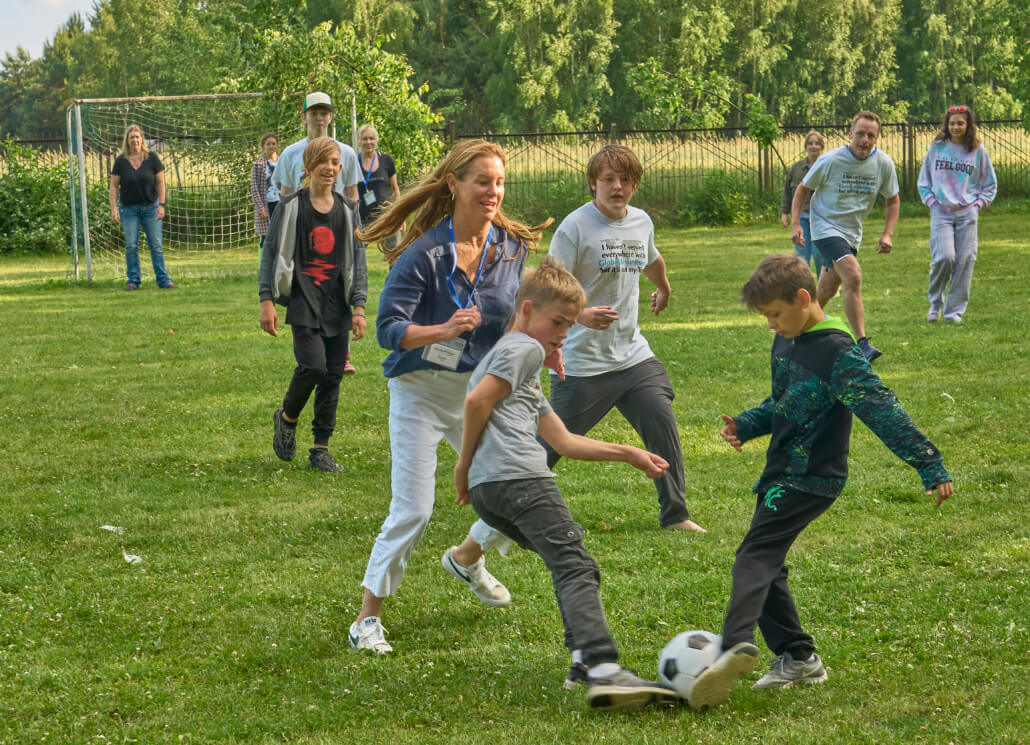
Despite her impressive service record at home, she admits that lingering questions persisted as her departure date approached. “I’ve always thought that compassion was feeling empathy, but in this case I was actually going to the place (Poland),” Pam explained. “I wondered, what can I possibly do for (the refugees) when I can’t say ‘it’s going to be OK,’ or ‘you’re going to be able to go back home soon?’ What can we possibly offer them? I don’t think anything could have really prepared me for (the program in Poland.) Certainly, I felt, you know, 100% safe with the organization, and everything was so perfect in that regard. And, because Global Volunteers’ main focus is not necessarily refugee work, I really liked the long history of volunteer work in Eastern Poland.” With confidence in her skills and Global Volunteers’ development expertise, she flew to Warsaw and united with her teammates in Siedlce County.
Her first impression of the “fiercely independent and proud” Ukrainian families gave her a sense of relief. Without a doubt, the people she would be serving had a sense of agency and self-determination they could easily support. “Yet they are so grateful,” Pam observed. “And, when any one of us would mention that the American people are standing behind them, they would break down, I mean they really would, and say, ‘why would you come here to help us?’ And, we’d say, ‘because we support you; we want you to know we care.’ And that would just seem to melt them. And, sometimes we’d show them our Facebook pages with several hundred people saying they were praying for and supporting them, and they were really shocked by that.”
That’s why she’s returning for another two weeks just a month after her first service program, and plans to go back again early in 2023 to contribute to resettlement projects she expects to be on-going. In a way, she feels she’s left “family” back in Poland, and can’t escape the gravitational pull of their need.
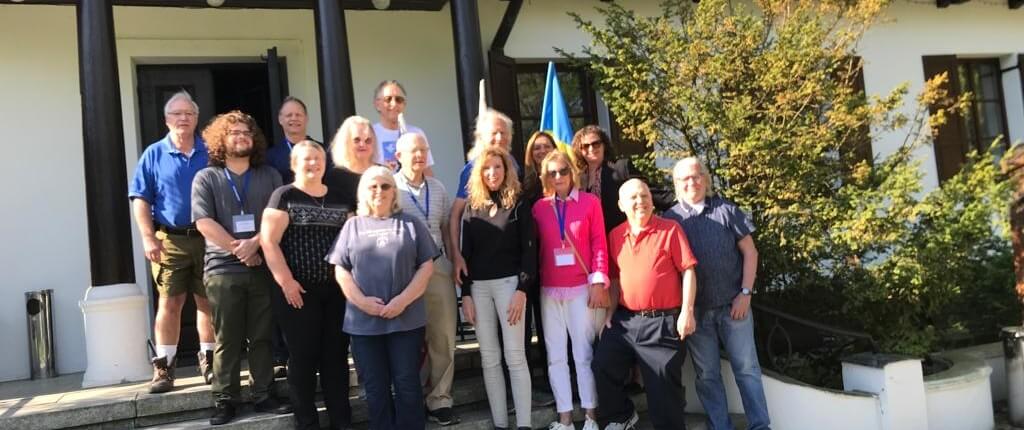
“One of the things I’m going to do when I return to Poland is pick up a family memento from a multi-generational Ukrainian family living in the residence Global Volunteers is renovating,” she continued. “I met them on my first service program and learned they have a cousin who, unbelievably, lives near me in Tulsa.” When she returns home for the second time, she’ll deliver the package to the woman, whom she recently met. “I’m honored to be trusted to be the carrier of this meaningful item back to America,” she said, symbolically uniting uprooted family members in wartime with another who has reached the safety and comfort of her new homeland. Volunteers who travel to offer comfort and support to Ukrainian families living the daily trauma of war are, in a similar way, bringing them a sense of hope for the future, Pam reflected. “I think of the mom who, every morning, packs her bags thinking, ‘this day I’m going to go home.’ It seems impossible, but from her perspective, she has to do that – as heartbreaking as that sounds – because that’s what keeps her going.”
Quietly, she concludes: “For me, one mom summed up all this correctly during one of our conversations. She said she had never thought of peace as a luxury until February 24th. Can you imagine that? Now that’s a lesson I brought home with me.”

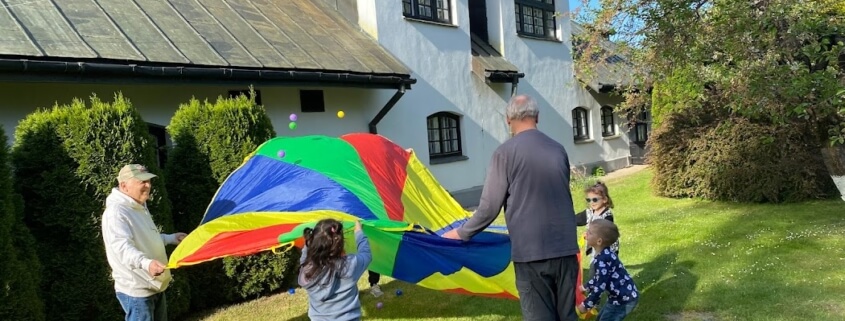


Leave a Reply
Want to join the discussion?Feel free to contribute!